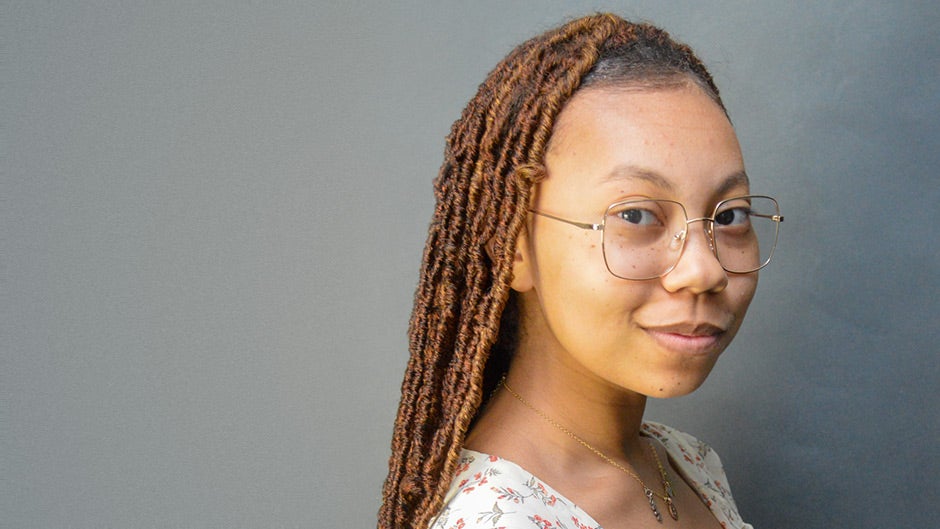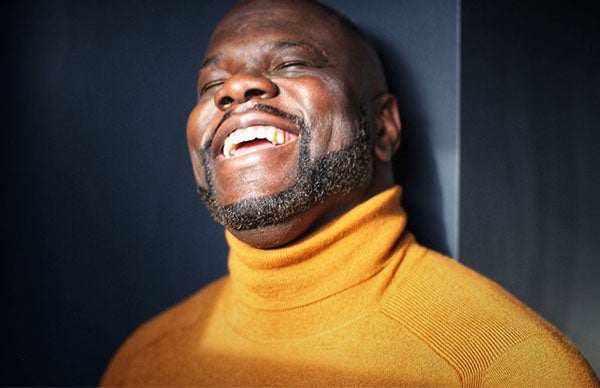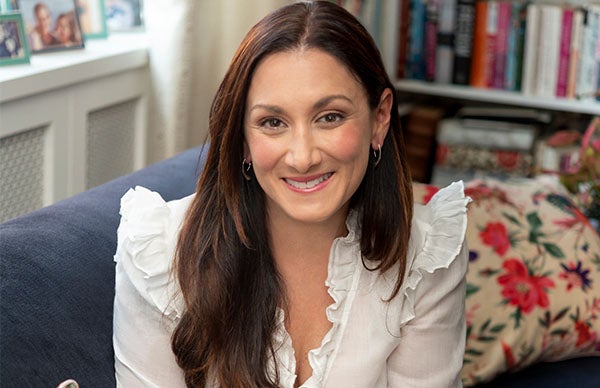Alora Young
Spoken word poet and author of Walking Gentry Home

Photo credit: Sonya Smith
-
About Alora Young
Alora Young is the 2021 Youth Poet Laureate of the Southern United States. Also an actor and poet, she has performed her poetry on CNN, CBS, TIME, and many local channels in Nashville. Young is a presidential scholar of the arts, a two-time TEDx Speaker, a scholastic gold medalist, an Americans for the Arts Round Table fellow, a Young Arts winner in spoken word, a recipient of the Princeton Prize in Race Relations, Spring Robinson literary prize, the Lin Arison excellence in writing award, and the International Human Rights Day rising advocate award. She was also nominated for Best of the Net by Rattle magazine.
Young is the founder of AboveGround, an organization seeking to create equity in Nashville elementary schools through creative writing and neurodivergent education. She is an inaugural intern at the Center for Race Research and Justice at Vanderbilt University, and has publications in or upcoming in the New York Times, Rattle, Washington Post, Signal Mountain Review, Rigorous Mag, and The Ice Colony. Young was a poet in Lyric Fest’s production of Cotton and contributed to the anthology I Know What the Red Clay Looks Like. She won two Best Young Actress awards at the Rome and Madrid International Film Festival.
Her book Walking Gentry Home was released by Hogarth Books in August of 2022, and Young became the youngest person ever to sign a book deal with Hogarth Books. It received a starred review in the Kirkus Review and it was nominated for a Goodreads Choice award. It won best debut in the Nashville Scene magazine and Ms. Magazine and was a best-seller on Amazon.
Walking Gentry Home is an American epic in verse. Informed by archival research, the will and testament of a slaver, formal interviews, family lore, and even a DNA test, it tells the story of Alora Young’s ancestors, brought to life by her imagination. From an unnamed woman who historical records have forgotten; to the first of her foremothers to arrive in Tennessee as an enslaved woman; through her great-grandmother, unhappily married at fourteen; to her own mother; down to Young in the present day as she comes of age, the lives of these women comes together to form an arresting saga. Above all, this unique family story gives voice to those most often muted: Black girls and women in America.
Alora Young has a degree in Spoken Word Pedagogy with a minor in Religion from Swarthmore College (class of 2025) and is planning to pursue a M.F.A in creative writing and a PhD in neurodivergent creativity. She spends her free time writing and playtesting her two board games Girlboss and Fake Your Own Death. She has written ten books and thousands of poems many of which will be coming out in the following years.
Contact us to learn more about booking Alora Young for your next event.
-
Speaking Topics
Discovering History Through Spoken Word Poetry
Art, and spoken word poetry in particular, can connect those living today to those who came before us. Through its rhyme and rhythm, it can be an imaginative tool to resurrect those lost to the passage of time, serving as both a memorial and mourner’s Kaddish. Before Alora Young started researching her foremothers, she did not know many of their names, much less the stories of their lives. While writing Walking Gentry Home, she discovered a forgotten family history through the power of poetry and speaking their names out loud. This is not a new phenomenon: many cultures have an oral tradition that keeps crucial familial and cultural histories intact. Young taps into these traditions, citing both the personal and historical, confronting generational trauma, speaking to the benefits of grieving through art, and demonstrating how we can adapt an age-old tradition to the modern era.
Spoken Word Poetry as the Next Great Educational Tool
Spoken word poetry is currently experiencing a cultural renaissance and can be found everywhere from hip-hop, in the rhymes of Kendrick Lamar, to the Broadway stage in the songs of Hamilton; from the heights of Amanda Gorman’s eloquent verses on the Inaugural stage to the quick snippets of TikTok poets whose voices go viral. Within this renaissance, spoken word poetry also offers immense educational potential. By harnessing the power of mnemonic devices and rhymed language, which many primary school educators still use, spoken word poetry is an effective and engaging learning strategy for students of all ages. Alora Young speaks to the evolution of the spoken word, from ancient classics like The Iliad and Beowulf to modern art, and demonstrates the power of performance as she makes a case for the spoken word as the powerful storytelling form of the future.
Black Women and the American Dream
Few have borne the brunt of America’s founding intersectional prejudices more than Black women and girls. We live in a country full of contradictions, where the bodies of Black women are often simultaneously despised and commodified, from the history of slavery to the beauty industry. Living with these contradictions led Alora Young to research the names and history of her foremothers, immortalizing them with poetry. Young discusses the historical importance of Black women in America, from contemporaries of Rosa Parks such as Claudette Colvin to the hardworking but unrecognized women who are left out of history altogether. In her passionate talk, Young speaks to why and how Black women have been held at arm’s length from the American dream, and how her generation is changing that.
Black Girlhood vs. Womanhood
When does girlhood end and womanhood begin? For Black girls and women, far too soon, argues Alora Young. As a young woman whose own family history is full of shotgun weddings and teenage pregnancies, Young has seen firsthand just how quickly girlhood can be stripped away. By voicing this reality through spoken word poetry, Young not only names what her foremothers have lost but seeks to reclaim her own girlhood before it’s too late. Through performance and discussion, Young dissects the historical patterns which have led to Black girls being viewed as women, and discusses the effect this has on the minds of Black girls across America.
The Mind is a Fractal: What Neurodivergent Thinkers Can Teach Us About Innovation
Author, poet, and neurodivergent Southern genius Alora Young doesn’t think in straight lines. She thinks in spirals, tangents, metaphors, and memories. In this electrifying talk, Alora maps the wild, brilliant geometry of the neurodivergent mind and shows how difference is not a flaw, but a force. From ADHD hyperfocus to autistic pattern recognition, from OCD’s precision to the poetic logic of psychosis, she unpacks how nonlinear minds hold the blueprints for creative revolutions.
With a voice that moves between sermon and stand-up, research and realness, Alora tells the story of what it means to innovate not in spite of your brain, but because of it. She shares tools for educators, companies, and creators who want to unlock radical imagination, as well as personal stories that will make you laugh, cry, and rethink everything you thought you knew about “normal.”
Perfect for audiences seeking insight, inclusion, and inspiration, this talk is a rallying cry for those who have ever been called too much, too weird, or too different.
Because fractals grow and flip and transform
But most importantly,
They make beauty out of chaos.Brilliant Beaming Spectrum: Rethinking Creativity, Innovation, and Intelligence from the perspective of neurodivergent genius
What if the next Einstein is a girl who doodles in class and forgets her backpack? What if the best idea in the room belongs to the person who hasn’t spoken yet? What if genius isn’t neat or quiet or linear, but loud, bright, chaotic, and covered in glitter glue?
In this luminous, laugh-out-loud, occasionally tearjerking talk, poet and author Alora Young takes you on a journey through the world of neurodivergent brilliance. Drawing from her lived experience with autism, ADHD, OCD, and psychosis, Alora challenges everything we’ve been taught about intelligence. She doesn’t believe in a spectrum that runs from broken to brilliant. She believes in a spectrum that beams. That blinds. That bends around corners and opens portals to ways of thinking the world desperately needs.
With poetry, pop culture, storytelling, and research braided together like friendship bracelets, Alora invites audiences to reconsider how we define value, creativity, and success. Whether she’s breaking down the science of pattern recognition or telling the story of the time she turned an OCD spiral into a poem that went viral, she’ll leave you laughing, learning, and looking at your own mind differently.
This talk is a manifesto for teachers, innovators, misfits, and the misunderstood.
It’s for the ones who never quite fit,
but always lit up the room.
Because brilliance doesn’t follow
a rubric.
It beams.The Future is Nonlinear: Harnessing Neurodivergent Minds at Work
Neurodivergent people don’t think outside the box, because we were never in the box to begin with. We think in spirals and storms, in patterns no one else can see, in rhythms that disrupt the status quo and rewrite what’s possible.
In this witty, grounded, and galvanizing keynote, poet and neurodivergent innovator Alora Young invites companies, teams, and leaders to rethink the way they see minds that work differently. From ADHD brainstorming brilliance to autistic systems-level thinking, Alora breaks down the science and soul of divergent cognition, and how it can drive innovation, collaboration, and long-term success.
You’ll walk away with a new lens on inclusion that goes far beyond accommodation. This isn’t about fitting neurodivergent people into old systems. It’s about letting them reimagine the systems entirely. Through stories, research, and just the right amount of poetry, Alora makes the case for a future that isn’t linear, hierarchical, or rigid, but luminous, adaptable, and deeply human.
Perfect for DEI events, leadership retreats, HR professionals, tech companies, creative agencies, and any workplace ready to embrace the brilliance it’s been overlooking.
Because the future isn’t a straight line.
And the minds that will build it won’t be either.Neurodivergent & Brilliant: The Untold Story of Creative Minds
How ADHD, autism, and OCD fuel innovation, artistic brilliance, and world-changing ideas. A call to reframe the narrative from deficit to genius.
We’ve heard the myths. That we’re too sensitive. Too scattered. Too intense. That we’re unmotivated, unfocused, hard to manage. But what if the real story is that we’re brilliant, and the world just hasn’t caught up yet?
In this vibrant, vulnerable, and truth-telling talk, author and poet Alora Young shares the untold story of neurodivergent creativity. Through her lived experiences with autism, ADHD, OCD, and psychosis, she invites audiences into the electric inner world of minds that think differently. This is not a story of overcoming. This is a story of becoming. Of turning spirals into structure, chaos into craft, and “too much” into power.
Part memoir, part manifesto, part love letter to misunderstood minds, this keynote is perfect for classrooms, conferences, and creative spaces that are ready to move past pity and into possibility. You will laugh, cry, and leave with a toolkit for recognizing and nurturing the brilliance that doesn’t always look the way you expect.
Because neurodivergent minds don’t need to be fixed.
They need to be heard.
And their stories might be the ones
that change everything.Every Brain is a Poem: Spoken Word Pedagogy and Neurodivergent Creativity in the Classroom
Some kids learn like thunder, loud, fast, unforgettable. Some like rivers, curving their way through the lesson until it finally makes sense. Some learn through rhythm, repetition, and rhyme. Some through silence. But every brain, when you listen closely, is a poem.
In this passionate, poetic, and practice-based talk, Alora Young, award-winning poet, educator, and neurodivergent thinker, makes a powerful case for spoken word poetry as one of the most effective tools we have for reaching all students, especially those who have been labeled “distracted,” “disruptive,” or “disengaged.” Drawing from her lived experience with autism, ADHD, and OCD, Alora offers educators a radical reframe: what if neurodivergent students are not failing school? What if school is failing to speak their language?
Blending research, classroom-tested strategies, and live performance, this talk offers a roadmap for teachers, administrators, and youth leaders ready to infuse their classrooms with creativity, inclusion, and authentic student voice. You will learn how spoken word supports literacy, critical thinking, and social-emotional development, and how it allows students to write themselves into the world before the world writes over them.
Because teaching is not just about test scores.
It is about giving students the tools
to find their voice and trust that it matters.From Daydreamers to Trailblazers: Neurodivergent Youth and the Power of Imagination
They said you were too much. Too dreamy, too loud, too quiet, too off-task. You were coloring outside the lines when they hadn’t even passed out the paper. But what if all that “too much” was actually the start of something revolutionary?
In this vibrant and empowering talk, author, poet, and lifelong daydreamer Alora Young speaks directly to and about neurodivergent youth, the thinkers, feelers, and visionaries who see the world a little sideways and imagine what no one else dares to. Alora shares her own journey from misunderstood kid to nationally recognized author, weaving personal stories, poetry, and research to highlight the deep creative and emotional power of neurodivergent minds.
Educators, parents, and young people will walk away with a reimagined understanding of intelligence, creativity, and what it truly means to thrive. This talk is a celebration of kids who learn through rhythm and chaos, who find patterns in clouds and stories in silence. It’s about turning daydreaming into direction, and imagination into impact.
Because the ones you think aren’t paying attention
might just be imagining a better world.
And when you believe in them,
they will build it.Be Weird and Win: On Creativity, Disability, and Liberation
This one’s for the weird kids. The loud ones, the quiet ones, the ones who stim in class and write poems in the margins. The ones who couldn’t sit still, who asked too many questions, who got called crazy, or lazy, or difficult when really, they were brilliant.
In this fierce, funny, and freeing keynote, author and poet Alora Young invites audiences to reimagine disability not as limitation, but as liberation. Blending lived experience with autism, ADHD, OCD, and psychosis, Alora tells the truth about what it means to be disabled and creative in a world that tries to make you pick one. Through stories, scholarship, and spoken word, she shows how “weird” is often another word for visionary, and how the very things that set us apart can be our greatest tools for making change.
This talk is a rally cry and a roadmap. Perfect for youth, educators, disability advocates, artists, and anyone tired of shrinking to fit. Alora offers a new kind of success story, one where being different is not just accepted, but essential.
Because being weird
is not a flaw.
It’s a strategy.
And it’s how we win.How to Write a Book Before You Can Rent a Car: A real-world guide to turning Neurodivergent teenage chaos into published pages.
You don’t need to be thirty, settled, or even organized to write a book. You just need a story, a stubborn kind of hope, and maybe a few spiral notebooks covered in doodles and snack crumbs.
In this funny, honest, and wildly encouraging talk, Alora Young, author, poet, and proud neurodivergent weirdo, shows young creatives how she wrote and published her first book before legally renting a car. Spoiler: it wasn’t about waking up at 5 a.m. or color-coding her outline. It was about writing through the mess, embracing her ADHD-fueled brain, and trusting that her voice mattered long before the world said it was ready.
Part motivational pep talk, part practical guide, and part behind-the-scenes truth bomb, this keynote gives teens the real tools they need to start and finish their books. From managing executive dysfunction to building writing routines that actually work for chaotic minds, Alora shares strategies that feel human, possible, and full of joy.
Perfect for student writers, teen workshops, youth festivals, and classrooms, this talk doesn’t just tell you it’s possible. It shows you how.
Because you don’t have to wait until you’re older
to write something unforgettable.
You just have to start
while you’re still becoming yourself.High definition: a guide to writing iconic books for neurodivergent creatives
Your brain isn’t broken. It’s in high definition.
I’ve written 10 books with a brain that forgets what I said five seconds ago. Here’s how. In this electric, empowering, and slightly chaotic session, poet and published author Alora Young gives neurodivergent creatives the ultimate guide to writing books that hit hard, heal deeply, and live forever. Whether you forget where you put your outline or you hyperfocus for twelve hours straight without blinking, this talk is for you. Alora doesn’t teach you how to “overcome” your brain, she teaches you how to write with it, through it, because of it.
She shares the tricks, tools, and rituals that helped her write and publish multiple books before turning 21,all while navigating autism, ADHD, OCD, and mental illness. You’ll learn how to build a book out of spirals instead of steps, how to turn sensory overwhelm into worldbuilding, and how to stop trying to write like neurotypical authors when your genius doesn’t work that way.
It’s craft. It’s coaching.
It’s permission to be messy
and magnificent.Perfect for writers, educators, workshop leaders, and anyone ready to make something iconic with a mind that moves a little differently.
Because neurodivergence isn’t the thing you write despite.
It’s the thing that makes your work
unforgettable -
Video
-
Praise for Alora Young
Praise for Walking Gentry Home
A multigenerational memoir delicately crafted in verse . . . With lyrical precision, Young refracts Black history through her family’s experiences of racism and ‘deferred dreams’ . . . A moving debut from a young writer with great promise.
— Kirkus Reviews, Starred ReviewWalking Gentry Home is extraordinary—family truth written with fire, an American story. The American Story, I should say. Poems that call out the lies that cage us. Songs that lift up the strength of girls and women who were (who are) denied their due. A book that honors ancestors, demands a reckoning, and gives me hope.
— Laurie Halse Anderson, author of Speak and Chains, finalists for the National Book AwardWalking Gentry Home is a masterpiece of a book that so beautifully captures the heartbreak that accompanies coming of age for Black girls becoming Black women. It’s that tissue that connects every girl in a family tree, no matter the generation, and it’s that pain, triumph, uncertainty, and trauma that collectively runs through our veins. Alora Young, on the cusp of womanhood herself, is a powerful observer of this transition, operating almost as a genealogist, a storyteller of her family’s history—and all our histories as well. Alora, daughter of Monette and many foremothers known and unknown, will be heralded as a literary force for many, many generations to come.
— Evette Dionne, author of Lifting as We Climb, longlisted for the National Book AwardThe truth-telling in this book will move and stir things in you that you did not even know were there. What a gift to the world. Alora Young’s words lay beauty on the page with the invitation to learn our histories through the women in her family. The tenderness and love of Young’s writing with the voices of her ancestors is astonishing. You have no choice but to love this book and let our generational curses be broken.
— Bettina L. Love, professor of education at the University of Georgia and author of We Want to Do More Than SurviveThis is a brilliant book, written by an equally ingenious author. This book captures readers right from the start. Walking Gentry Home is a must-read for any of us who dare to know more about our history in order to inform how we live, learn, and navigate our present worlds. A call to concurrently tap into our hearts and minds as we learn from our ancestors, this book teaches as it inspires.
— H. Richard Milner IV, chair of education at the Department of Teaching and Learning at Vanderbilt Peabody College and author of Start Where You Are, but Don’t Stay ThereThese are necessary poems—pulsing with syntactic urgency, cinematic poignancy, textural pleasure, and deep generational wisdom.
— Karyna McGlynn, author of 50 Things Kate Bush Taught Me About the Multiverse -
Books by Alora Young
-
Media About Alora Young
Request Fees
and Availability
- 212 572-2013
- Alora Young travels from Nashville, TN
Featured Title

Walking Gentry Home
“A masterpiece that beautifully captures the heartbreak that accompanies coming of age for Black girls becoming Black women.”—Evette Dionne, author of Lifting as We Climb, longlisted for the National Book Award













